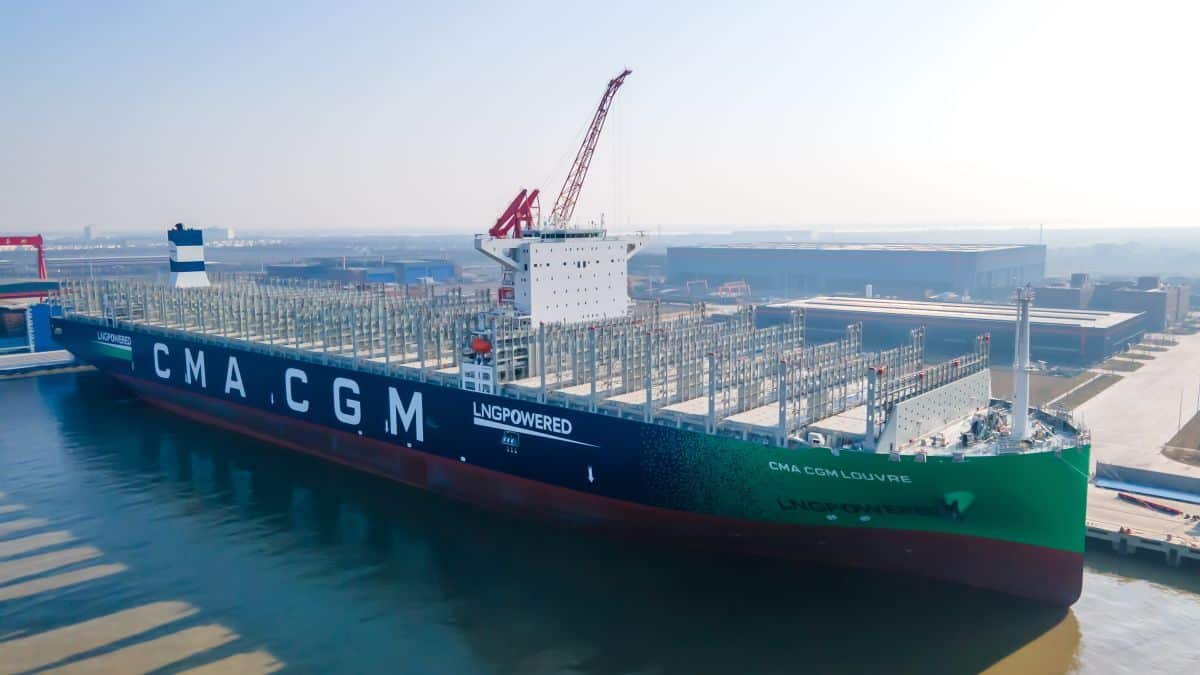Riviera – News Content Hub

19 Sep 2023by Rebecca Moore
A statement explained that as frontrunners of the energy transition in shipping, both companies are convinced that joint action will help accelerate the green transition in shipping, learning from each other to go further and faster
CMA CGM and Maersk have both set a net-zero target for their shipping business, have identified scalable solutions that can create an impact in this decade, and have already individually taken ambitious paths to promote decarbonisation for shipping.
Maersk has been ordering vessels that can be operated on bio and e-methanol. Its first delivered, Laura Maersk, was named last week.
CMA CGM has been ordering LNG-propelled vessels that can also be operated on bio and e-methane, the new green equivalent of LNG, and has also placed orders for vessels that can be operated on bio and e-methanol.
While these two fuel streams appear the most mature among existing solutions, both companies expect the future fuel mix of shipping to include other streams that should be developed in the coming years.
Both shipping lines will work more together to develop the use of alternative green fuels for container vessel propulsion, namely: developing high standards for alternative sustainable, green fuels – including the analysis of full lifecycle and related greenhouse gases – and helping to set the framework of mass production of green methane and green methanol; developing and maintaining standards for operating green methanol vessels with regards to safety and bunkering, and accelerating port readiness for bunkering and supplying bio and e-methanol at key ports around the world; continuing to explore jointly R&D on other components of the net-zero solution as new alternative fuels, such as ammonia, or innovative technology for ships.
Maersk and CMA CGM said they both agree to the fundamental role of regulation in securing the decarbonisation of the sector. Both companies “warmly welcome” the outcome of the recent Marine Environment Protection Committee of IMO, during which IMO’s 2023 strategy for reducing greenhouse gas (GHG) emissions from ships was adopted, with reinforced targets to tackle harmful emissions.
The statement continued, “Maersk and CMA CGM remain committed to jointly advocating for and encouraging IMO member states to adopt ambitious measures in their pursuit of the highest attainable goals. Regional measures such as the EU Fit for 55 and the Inflation Reduction Act in the US are welcomed by both companies to help stimulate demand for green shipping solutions.”
CMA CGM and Maersk said they affirmed their readiness to collaboratively engage with regulatory stakeholders in establishing a robust and sustainable international regulatory GHG framework and invited other international shipping lines to join them in this co-operation with the regulatory institutions.
“Such a framework is in both our companies’ perspective a prerequisite to reducing carbon emissions for the shipping industry and securing a level-playing field for a global business environment,” said the statement.
“This partnership is a milestone for the decarbonisation of our industry. By combining the know-how and the expertise of two shipping leaders, we will accelerate the development of new solutions and technologies, enabling our industry to reach its CO2 reduction targets. We are looking forward to being joined by other companies,” said CMA CGM Group chairman and chief executive officer Rodolphe Saadé.
“AP Moller-Maersk wants to accelerate the green transition in shipping and logistics and to do so, we need strong involvement from partners across the industry. We are pleased to have an ally in CMA CGM and it’s a testament that when we unite through determined efforts and partnerships, a tangible and optimistic path toward a sustainable future emerges,” said AP Moller–Maersk chief executive officer Vincent Clerc.
